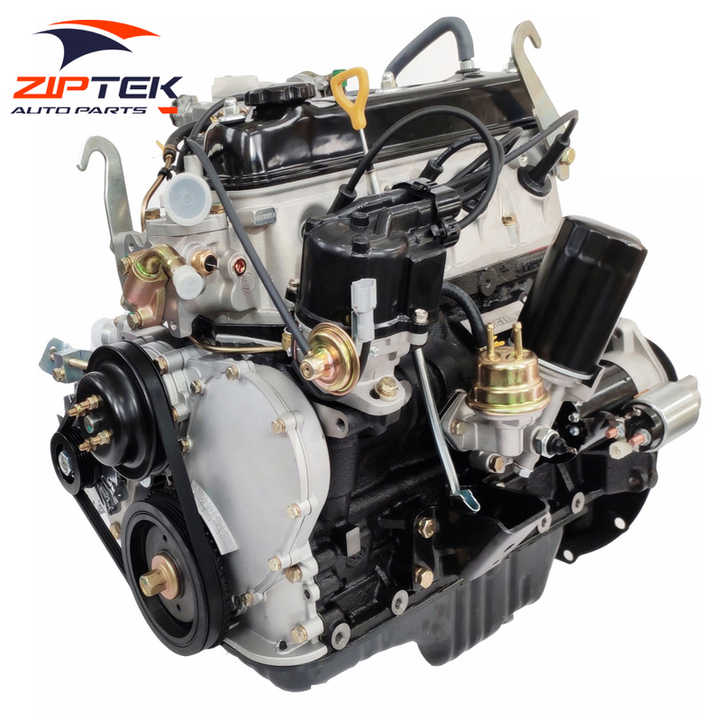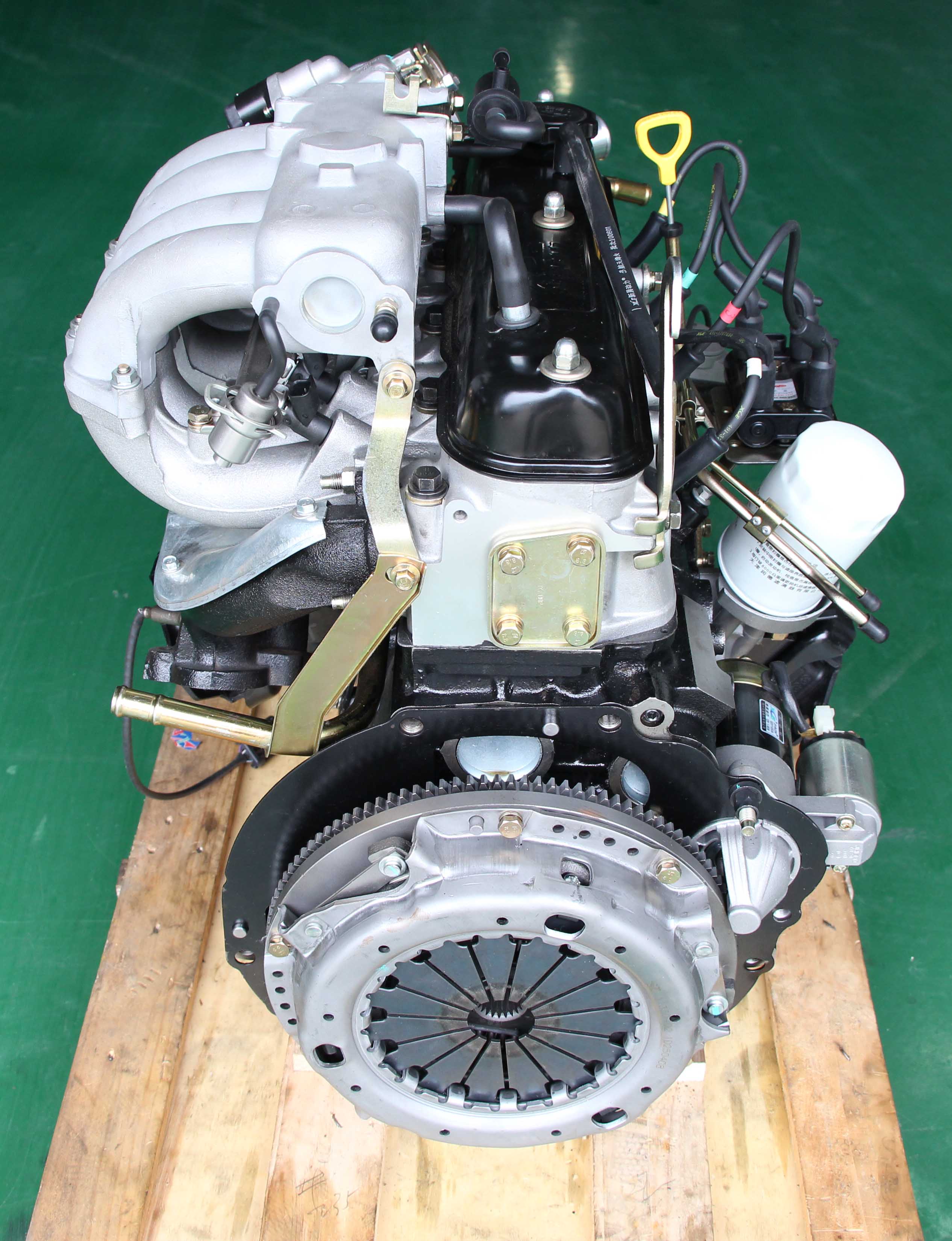Understanding the Mechanics Behind the 4Y Engine’s Power and Durability
Understanding the Mechanics Behind the 4Y Engine’s Power and Durability
Blog Article
The Ultimate Guide to the Engine: Secret Insights for Every Car Enthusiast
Recognizing the engine is essential for any type of automotive enthusiast, as it acts as the heart of the car and dictates its efficiency. This guide provides a complete assessment of engine anatomy, types, and the auto mechanics behind their operation, consisting of the cutting-edge modern technologies that are reshaping the auto landscape. It highlights the important nature of maintenance methods that can dramatically impact an engine's life expectancy. Nevertheless, the intricacies of engine dynamics and the current innovations in technology present concerns that warrant more exploration. What might these insights reveal regarding the future of vehicle design?
Composition of an Engine
Comprehending the anatomy of an engine is important for any cars and truck enthusiast seeking to dig deeper into automotive mechanics. An interior combustion engine mainly contains several key parts that function in unison to transform gas right into mechanical energy.
At the heart of this system lies the cyndrical tube block, which houses the cyndrical tubes where combustion occurs. Piston movement within these cyndrical tubes is assisted in by the crankshaft, which equates linear activity into rotational energy. In addition, the camshaft plays a crucial function in controlling the opening and closing of the engine's shutoffs, making sure proper air-fuel mixture consumption and exhaust gas expulsion.
Other important parts consist of the fuel system, which provides the engine with the required gas, and the ignition system, in charge of initiating burning - 4y engine. The cooling and lubrication systems are additionally important, maintaining optimum operating temperature levels and decreasing rubbing, respectively
Engine Kinds and Configurations
A diverse variety of engine types and configurations exists, each offering special benefits and downsides tailored to various driving needs and choices. One of the most typical engine kinds include inline, V, level, and rotary setups.
Inline engines, including cylinders prepared in a single line, are understood for their simpleness and efficiency. They are usually discovered in portable lorries, offering a balance of power and economic situation. V engines, defined by their 2 banks of cylinders set up in a V shape, offer greater performance and smoother procedure, making them preferred in sports and high-end cars.
Flat engines, or fighter engines, have actually flat opposed cylinders, which contribute to a reduced facility of gravity, boosting vehicle stability. These are frequently seen in brand names like Subaru and Porsche.
Rotating engines, although less common, use a special layout with a triangular blades and deal high power-to-weight ratios. They stand out in small and light-weight applications, mostly seen in Mazda cars.
Each engine type serves particular efficiency features, weight circulations, and gas efficiencies, guaranteeing that automobile fanatics can select the ideal engine setup to match their driving design and automobile needs.

Just How Engines Function
Engines, no matter their type or setup, operate fundamental concepts that control their performance and efficiency. At their core, engines convert gas right into power through a series of regulated explosions or compressions. This process typically involves 4 primary strokes: intake, compression, power, and exhaust.
During the consumption stroke, the engine reels in a mixture of air and gas. The compression stroke complies with, where the mix is pressed in the cyndrical find more info tube, enhancing its temperature and stress. In the power stroke, a spark ignites the pressed mix (in gasoline engines) or the combination sparks spontaneously (in diesel motor), leading to a quick growth of gases that pushes the piston down. Lastly, the exhaust stroke expels the invested gases from the cylinder.
The effectiveness of an engine is affected by various aspects, including the style of the burning chamber, the kind of fuel utilized, and the accuracy of the engine's components. Comprehending these fundamental principles is essential for auto lovers that look for to appreciate the elaborate technicians behind their vehicles, in addition to for those intending to boost performance with adjustments and adjusting.
Innovations in Engine Innovation
Over the last few years, innovations in engine technology have substantially changed the automotive landscape, enhancing both performance and environmental sustainability. Among one of the most find out here remarkable innovations is the development of turbocharging and supercharging, which allows smaller engines to produce higher power outcomes without compromising gas effectiveness. This has actually caused a surge in the appeal of scaled down engines, supplying makers with the capacity to meet rigid discharges guidelines while maintaining efficiency requirements.
Furthermore, hybrid and electric powertrains are improving the engine standard. Hybrid systems incorporate internal burning engines with electric motors, enhancing gas usage and minimizing discharges. Completely electrical lorries (EVs) eliminate the combustion engine completely, relying on advanced battery innovation to deliver immediate torque and outstanding acceleration.
Furthermore, the assimilation of artificial knowledge and maker understanding in engine management systems allows for real-time optimization of efficiency criteria, enhancing efficiency and responsiveness. Advancements such as variable shutoff timing and direct gas injection further fine-tune combustion procedures, making the most of power outcome while reducing waste.
As the vehicle market remains to progress, these advancements in engine modern technology will play a critical duty in forming the future of movement, focusing on both efficiency and sustainability.
Maintenance Tips for Lovers
Keeping an engine is as crucial as the advancements that enhance its performance. Routine maintenance not my website just prolongs the life of your engine yet also makes sure optimal efficiency.
Examine and change air filters periodically to guarantee correct airflow, which is important for combustion effectiveness. A blocked air filter can lead to decreased performance and increased gas consumption. Keep track of the coolant degrees to avoid getting too hot, and change coolant according to the solution schedule. 4y engine.

Final Thought
In final thought, a thorough understanding of engine composition, kinds, and technicians is crucial for automobile fanatics. Regular maintenance practices, including oil adjustments and air filter checks, are critical for guaranteeing optimum engine functionality and durability.

Engines, regardless of their type or configuration, operate on essential concepts that control their efficiency and performance. In the power stroke, a trigger ignites the pressed blend (in gas engines) or the blend sparks spontaneously (in diesel engines), resulting in a quick development of gases that presses the piston down.In recent years, advancements in engine innovation have considerably transformed the automotive landscape, improving both efficiency and ecological sustainability.
Report this page